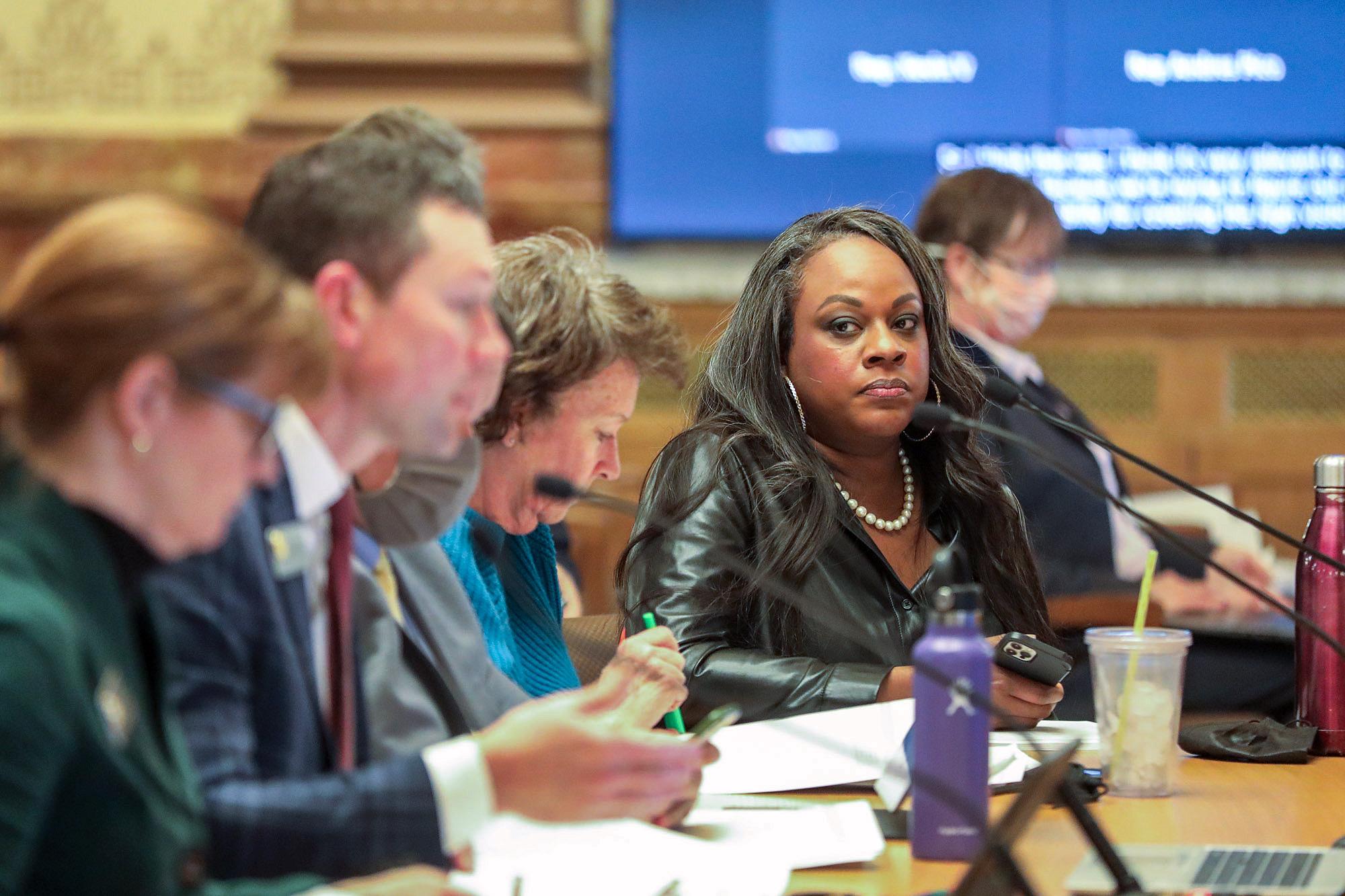
The apparent fentanyl-related deaths of five people in Commerce City is creating new political pressure to once again change Colorado’s drug laws.
Lawmakers from both parties are discussing whether to change the state’s criminal punishments for some types of drug dealing, and some have connected criminal justice reforms with rising overdose deaths.
Gov. Jared Polis raised the issue in his annual State of the State address last month, saying he wanted to see greater penalties for fentanyl dealers specifically. On Tuesday, spokesman Conor Cahill said the governor was working on a “thoughtful package” that would include harsher penalties for possession and distribution of the deadly drug.
“While there is no guarantee that increased criminal penalties would have prevented this tragedy, we clearly need real consequences and harsher sentences for those involved with dealing or possessing enough fentanyl to kill people,” Cahill wrote.
Colorado’s Democratic governor, attorney general, and House speaker all say they are working on a plan to increase criminal penalties related to fentanyl. It’s a priority shared by Republicans, too — but the two sides are split on the cause of the crisis.
“I would hope that the shocking and very sad deaths of the five people in Commerce City … would be enough for all of us to realize that there are times when the legislature just gets it wrong,” said Republican Sen. Barbara Kirkmeyer, who wasn’t yet in office when the law passed.
Kirkmeyer, along with some prominent law-enforcement officials, has put the blame on HB19-1263, a 2019 law that was backed by Democrats and Republicans. That change reduced penalties for possession of less than four grams of nearly all Schedule I and Schedule II drugs, including ecstasy, cocaine, heroin and fentanyl. Fentanyl in its rare, pure form can kill in extremely small doses — just a few thousandths of a gram.
But Democratic lawmakers and others don’t appear to be talking about revising the 2019 law; instead, the current focus is how the state punishes people convicted of selling drugs, not just possessing them.
Rep. Leslie Herod, a sponsor of HB19-1263, said Colorado needs new ways to address fentanyl. But she said that the bipartisan 2019 reforms are being wrongfully scapegoated as policymakers try to address rising overdoses.
“The whole framing of the conversation is 100 percent political, and it’s on both sides of the aisle,” she said.
What’s to blame?
Tom Raynes, executive director of the Colorado District Attorneys Council, said the 2019 law has led to more overdose deaths by making it harder to punish dealers.
While that law didn’t change the punishment for dealing drugs, it did take away an easier route for prosecutors: In the past, they could still get a felony charge for simple possession, without having to prove intent to distribute.
Now, he said, a dealer with 30 fentanyl pills could claim to simply be a user. “And without some other evidence of dealing, he’s going to walk away with a ticket,” Raynes said.
Herod reiterated that the bipartisan reform did nothing to change the law for drug distribution. She said that prosecutors across the state are still charging people with distribution for amounts less than four grams, showing it's possible. And it’s incumbent on the prosecution, she said, to bring charges for the appropriate crimes and find evidence to support them.
“I think they’re trying to use the 2019 law to just point the finger,” she said. “The rise in overdose deaths in Colorado started in the 2000s. We’ve been talking about it since then.”
What is being proposed?
House Speaker Alec Garnett confirmed he was working on a bill, although it hasn’t been introduced yet. He stressed that the focus was on targeting dealers and helping users.
“Is four grams of fentanyl a lot of fentanyl? Yes. Will it kill a lot of people? Yes. Does putting addicts in jail solve the problem? No,” Garnett said in a media briefing Tuesday.
Separately, Herod said that she’s open to the idea.
“I do believe there is opportunity for us to talk about policy on the public safety side for ensuring those high level dealers are gone and that we take fentanyl off the streets,” she said, though she added that the “devil is in the details.”
Lawmakers have revealed few of those details. But one proposal would allow drug dealers to be charged with more serious crimes at lower levels of possession, according to Raynes.
For example, the highest level of drug distribution felony currently applies to a person caught with more than 225 grams of schedule I and II drugs. Raynes wants to see that lowered to 50 grams.
The thresholds for the second-highest charge also could be dropped from 14 grams to 4 grams, Raynes said. (Those distribution charges would still require evidence that the person was selling or planned to distribute the drug.)
Raynes also wants lawmakers to consider adding harsher punishments when the distribution of a drug leads to death, and he wants more legal options for forcing drug users to get treatment. In the past, the threat of a felony possession charge made that easier, he said.
Lisa Raville, executive director of the nonprofit Harm Reduction Action Center, agrees that the increasing presence of fentanyl in the state requires “all hands on deck.”
But she worries that a drive for increased penalties would mostly hurt people who are addicted to the drug. While four grams of pure fentanyl could contain thousands of lethal doses, the weight thresholds for criminal charges apply to “compound” substances. People with a few grams of pills that contain just a trace amount of fentanyl could be caught up in enforcement efforts.
And Raville’s skeptical that targeting suppliers — a long-running focus of the war on drugs — will have much effect.
“I have a lot of concerns about the direction they’re going with fentanyl,” she said. “But nothing’s been introduced yet (in the legislature.) I’m trying to wait and see.”









